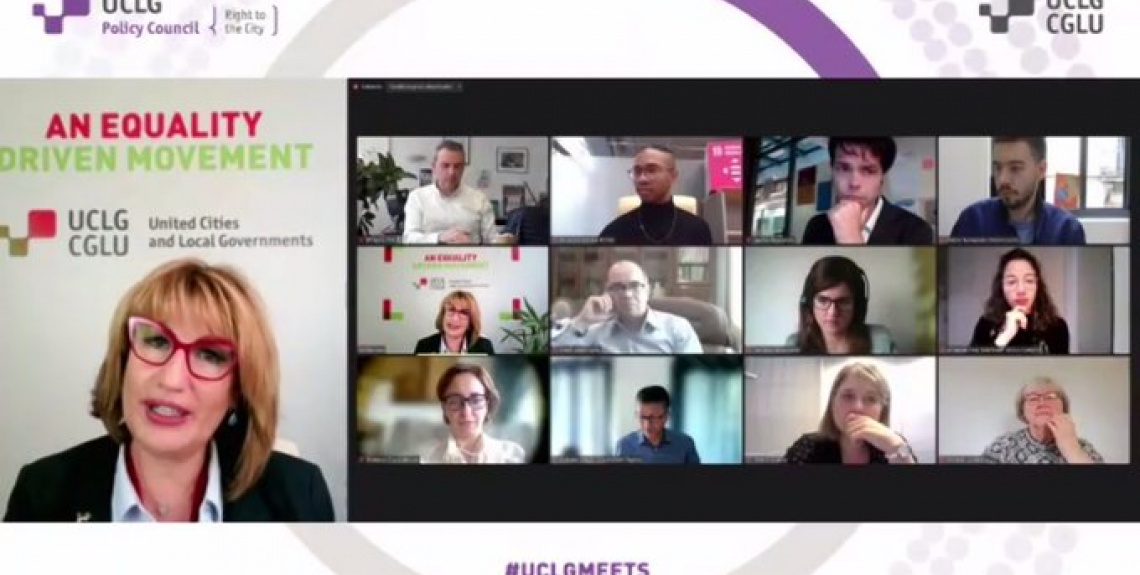New horizons for the social agenda of UCLG were discussed last 25 October at the occasion of a new edition of the UCLG Policy Council on the Right to the City. Key members of the Committee took part in this event to address the role of emerging priorities and approaches on social inclusion and human rights in the Pact for the Future process. Our human rights roadmap played an important role in the discussion as a concrete vehicle to advance this social agenda through local governments’ political discussion and collective action
Representing the UCLG-CSIPDHR co-presidency, Grigny Mayor Philippe Rio argued how, ahead of the great transitions the world is currently going through right now - ecological, social - local governments are ready to play a key role in protecting the most vulnerable and addressing the various impacts of inequality through a renewed generation of human rights: new themes, priorities and approaches. In order to become an effective political actor beyond their own territories, local government cooperation should be able to adapt and react rapidly to changing scenarios and new socioeconomic, political and ecological challenges.
In introducing their priorities, policy councillors laid the foundations of what could look like a renewed social agenda for the World Organization. The social impacts of the climate emergency were highlighted by Sala Mayor Carola Gunnarsson and Begur Mayor Maite Selva, framing this emerging agenda from an intergenerational justice point of view. The Deputy Mayor of Libreville, Annie Chrystel Limbourg, referred to intergenerational dialogue from the point of view of unaccompanied minors and access to citizenship as a right.
The caring and human rights approaches to public service provision are key platforms to address the inequality crisis and exacerbated discrimination at a local level, according to Ouagadougou Mayor Armand Béouindé and Bogotá Undersecretary for governance Daniel Camacho. Protecting the most vulnerable and putting in place concrete mechanisms to address the needs of diverse populations was seen as key added values of local government action - more important than ever in the context of COVID-19 aftermath.
Montevideo’s directress of international relations Fabiana Goyeneche introduced key topics nourishing this revamp of UCLG’s social agenda: From committing to right to housing policies to tackling violence against women or fostering inclusive digitalization.
The migration file was finally addressed by the Mayor of Lampedusa Salvatore Martello and Deputy Mayor of Sfax Med Wajdi. Local government cooperation on this issue is not only helping to showcase policy innovations by local authorities in the area of inclusion and care, but providing a platform to advocate in favour of a human rights-respectful global governance of migration, as well as to build bridges of peace between territories.
The Lampedusa Charter process will help advance this agenda within the wider UCLG roadmap, along with the Global Charter-Agenda update process led by UCLG-CSIPDHR members - already exploring emerging human rights priorities. A representative of the OHCHR also took part in the meeting to introduce the forthcoming agreement with UCLG as a key vehicle to advance local government cooperation on human rights. These and other processes will follow-up the Policy Council agenda in coming months. Reach [email protected] to know more about this agenda and how to contribute to it.


